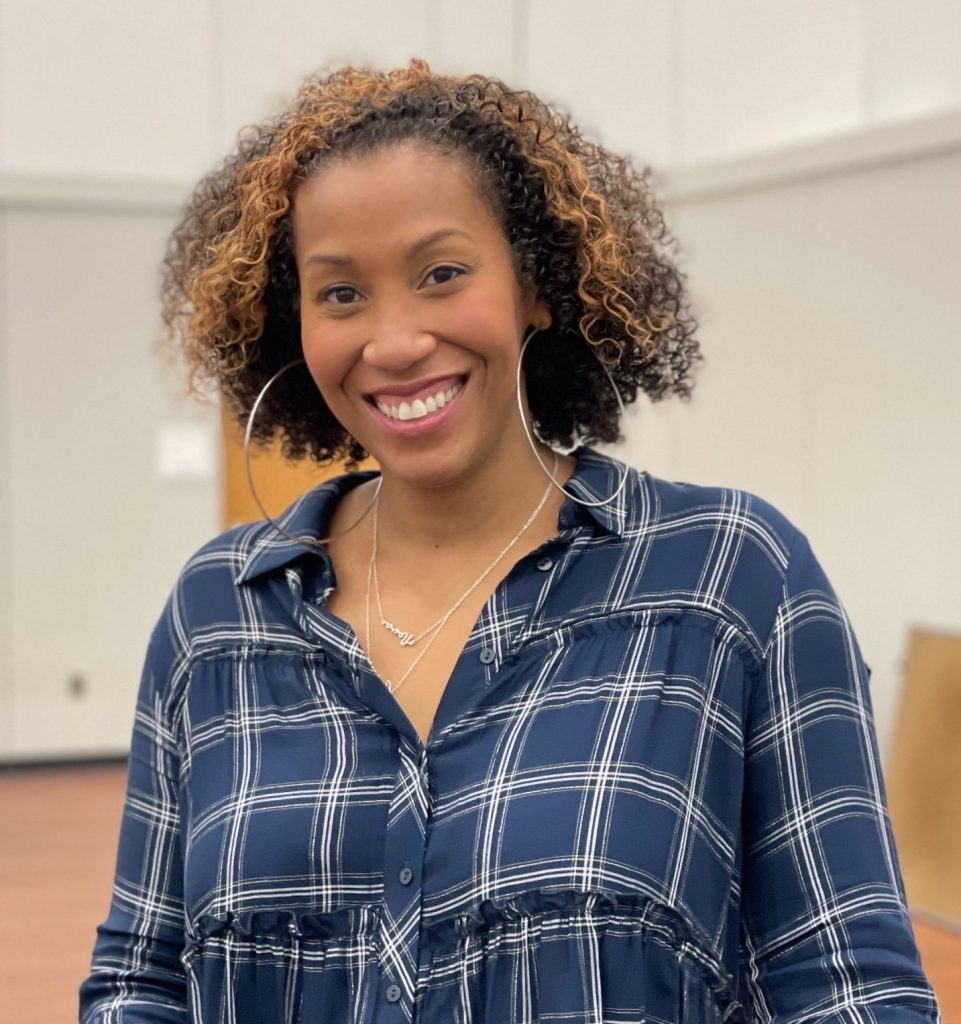“I’ve always known this is what I wanted to do, who I wanted to be.” ~Rissi Palmer
by Catherine Zachary, B.Mus. ‘10

Singer-songwriter Rissi Palmer visited Professor Jocelyn Neal’s songwriting class in early October, opening up about her journey in the industry and the lessons she’s learned along the way.
Palmer shot to fame in 2007 with her hit single “Country Girl”, but her passion for writing songs started when she was just a kid who idolized strong, songwriting women including Dolly Parton, Emmy Lou Harris, and Mariah Carey. As she told the class, “These are people who took charge of their songs, of their music.”
This life-long love of songwriting is what made it possible for her to co-write 12 of the 13 songs on her first album–something that was uncommon in the industry at the time. Her first album was also a bold move: until that project, she had kept her country music interests largely private, and been working in other genres because she didn’t think she would fit in country music.
When she hit the country Top 40, critics and audiences weren’t talking about her incredible music, but rather her race. While she’s not one to shy away from a conversation on race, Palmer understandably wanted to be known more for talent and credibility in the industry than the color of her skin. This, among other issues in the industry, led her to exit her record deal in 2009, which resulted in a protracted legal battle–the effects of which she is still feeling to this day.
Although the change to being an independent artist was tough, she doesn’t regret it. As she stated proudly, “If you are sure of who you are and what you want, hold your ground.” She encouraged students to “fight for things you want and against the things you don’t. Some things are worth fighting for and some things aren’t – you’ll know the difference.”
In 2010, Palmer got married, had a baby, and made a children’s album, which was an opportunity to get back to her roots of songwriting and rediscover her love of music outside the pop industry. In 2019 she independently released Revival, a genre-defying, snapshot album of her life and herself as an artist. Palmer told the students that being independent changes the way she navigates the social construct we know as “genre.”
Writing commercial music means thinking about form, trends, sing-ability, and what will be on the radio in 10 years. When she’s writing and creating now is free from those constraints. She lets inspiration lead her, but her audiences still matter to her, and she always thinks about how her music will translate on stage in a live show.
“You have to really know who you are,” she said. “That dictates how you write.”
Fast-forward to August of 2021 and her career took another bold turn. Palmer began a podcast, Color Me Country, which Apple Music picked up for distribution. “It’s time for country music to know where the f**k it came from,” she says.¹ Color Me Country gained widespread acclaim, and suddenly everyone was calling for interviews, collaborations, and major projects. As she put it, “Nothing has changed with me, but the response to me has changed.”
Today Palmer finds herself more in demand than ever before, and happy to have ways to give back the knowledge she has acquired along her journey. She encouraged students looking to build careers in the industry to separate the professional and personal lives–some things shouldn’t be for sale, she counseled. To stay persistent in the pursuit of their dreams, and seek out advice from the people who’ve been there. But always be willing to offer something in return for their help. “When you want something, offer something,” she advised.
She doled out advice on songwriting for both the professional and the amateur: “Pay attention to the things that stick and you can’t stop thinking about. Don’t give up on those ideas,” she suggested, “just write them down, and in time, you’ll come back to [them].”
“Everything is a potential line, subject matter, melody – stay open to everything,” she counseled. “It can become a really cerebral thing, but it should always come from the heart.”
For those looking to continue their songwriting passion as a hobby, she advised looking into songwriting groups in your area. Palmer pointed out that there are lots of adult songwriting groups that take their music very seriously, but still have day jobs. Open mic nights are also always a great place to seek out potential collaborators.
Before she left, we had to ask what it’s like to be able to pass on the lessons she’s learned to the next generation of songwriters.
“It’s full circle. It’s great to be able to help point people in the right direction and demystify the industry,” she said. “I was too scared to even do music in college. I didn’t even major in music in college. Everything is scary until you do it.”
¹Quoted from the introductory paragraph to her podcast, Color Me Country, on colormecountry.com.
